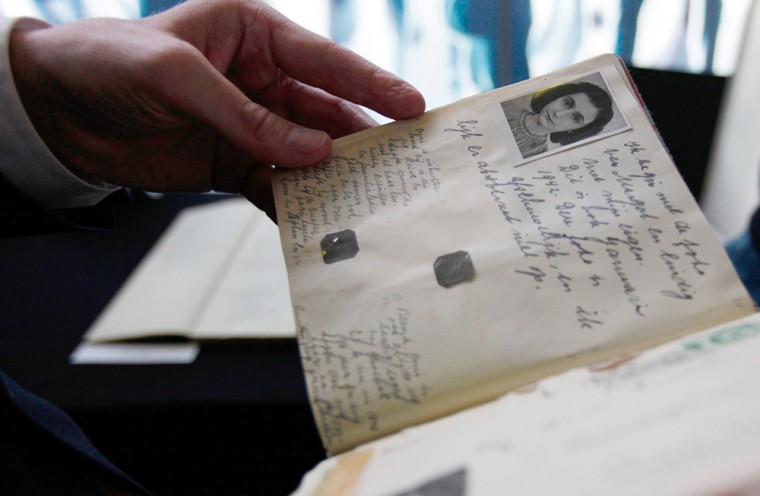The Anne Frank House museum says it will put the teenage Holocaust victim's diaries and other writings on permanent display to commemorate what would have been her 80th birthday. She was born June 12, 1929.
Frank died in a concentration camp at 15.
Until now her posthumously published diaries and other works have been kept in an archive at the Netherlands Institute for War Documentation. Some have previously been displayed at the museum, which encompasses and preserves the "Secret Annex" — the tiny apartment above a canal-side warehouse where the Frank family hid for two years.
Education Minister Ronald Plasterk said it was important for the historical record that the writings be on display at the museum, "on the spot where they were written."
Frank's works include the red-and-white autograph book where she wrote her first diary entries in June 1942, before the family went into hiding in July. That book is on display at the museum now.
In addition, Frank used two school exercise books as diaries once the autograph book was full.
There is also a small ledger from her father's office she filled with quotes she liked from books she had read; and an account book she used to write short stories in.
Finally, there are 360 loose sheets of paper that she used to rewrite the diaries when it became apparent that Germany was losing the war and she began to dream that the occupation of the Netherlands would end and her diary might one day be published.
"I know that I can write, a couple of my stories are good ... there's a lot in my diary that speaks, but whether I have real talent remains to be seen," she wrote on April 4, 1944.
The family's hiding place was betrayed and they were arrested by German police in August 1944. Anne died of typhus in the Bergen-Belsen concentration camp just weeks before it was liberated in the spring of 1945.
Her diary was recovered and preserved by Miep Gies, a Dutch woman who helped the family while they were in hiding. Otto Frank, Anne's father, survived the war and published the diaries in 1947. They have since been translated into dozens of languages and read by millions of people worldwide.
"I want to go on living even after my death!" Anne wrote in the same April 4 entry.
"And therefore I am grateful to God for giving me this gift, this possibility of developing myself and of writing, of expressing all that is in me."
The museum says it hopes to have all Anne Frank's writings on display by Nov. 1.
